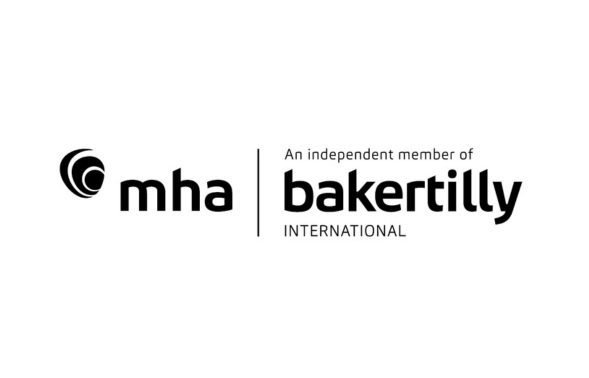For businesses looking to fund specific projects, there are currently some grants and loans available within various sectors such as Construction, Transport, Creative, Technology and Agriculture. These include grants to support the development of AI solutions and loans to help SMEs to transform their innovations into successful, commercial realities. We've signposted these opportunities in our blog linked below.
If you own or manage a business within the Manufacturing sector you may be interested in coming along to our upcoming METALL event on Thursday 12th October. We are excited to hear from Marcus Wright, Senior Economist for NatWest who will provide us with an update on the UK economy and discuss the key issues that have affected manufacturing businesses in 2023 as well as what lies ahead in 2024. You can sign up for the event through the METALL website.
An estimated 10% of UK adults now own some form of crypto – if you fall into that category it is important to make sure you understand how these are taxed in the UK. It is an area that HMRC are increasingly looking into and with changes in rates, more people are expected to report their Crypto for the year ended 5 April 2023. Find out more in our blog and fact sheet.
Finally, do you know anyone that is interested in starting a career in tax? Our trainee recruitment programme is now open and we are looking for tax trainees to join our growing team. You can find out more about the positions on our website.
How are dividends taxed in the UK?
As an investor or business owner, you’re likely familiar with dividends. These are payments made to shareholders as a share of company profits. But how are dividends taxed in the UK?
Dividends are paid to shareholders out of profits generated by a company. The aim of issuing dividends is to reward shareholders for their investment in the company. However, it also helps keep shareholders interested in the future success of that company.
It’s important to note that dividend payments are not tax-deductible expenses for companies. So, they do not reduce a company’s taxable profits.
In this blog, we explore this important topic and learn more about the tax implications of receiving dividends in the UK.
How are dividends taxed in the UK?
As an investor or business owner, you’re likely familiar with dividends. These are payments made to shareholders as a share of company profits. But how are dividends taxed in the UK?
Dividends are paid to shareholders out of profits generated by a company. The aim of issuing dividends is to reward shareholders for their investment in the company. However, it also helps keep shareholders interested in the future success of that company.
It’s important to note that dividend payments are not tax-deductible expenses for companies. So, they do not reduce a company’s taxable profits.
In this blog, we explore this important topic and learn more about the tax implications of receiving dividends in the UK.
METALL event
Date: Thursday 12th October 2023
Time: 8.00-10.00am
Venue: Cottesmore Hotel Golf & Country Club, Crawley
Marcus Wright, Senior Economist at NatWest Group will provide us with an update on the UK economy and discuss the key issues affecting manufacturing businesses in 2023.
Topics covered:
- Latest views affecting business in 2023 and beyond
- Key trends in the Manufacturing sector
- The impact of the cost of living crisis
- How the challenge posed by the transition to net zero is being met.
Unlocking Opportunities: New Business Grants in Key Sectors
In today’s fast-paced business environment, staying ahead of the curve often requires a boost in funding.
Whether you’re a startup or an established player, grants can be a game-changer for your business. We’ve scoured the funding landscape to bring you the latest opportunities in various sectors, including Transport, Construction, Agriculture, Creative Industries, Creative Media, Technology, and Sustainability.
Let’s dive into these exciting prospects and see how they can fuel your innovation and growth.
How are Cryptoassets taxed in the UK?
Whilst the world of cryptoassets (“Crypto”) may remain this mystifying, enthralling, or even perhaps alien concept to some, to HMRC it is another way in which they can charge tax on you or your business.
In particular, it is an area they are increasingly looking into. With changes in rates, more people are expected to be required to report their Crypto from 6 April 2023.
Let’s take a closer look at how Cryptoassets are taxed in the UK.
Tips on Succession Planning for Your Business
Succession planning involves transferring the management and control of a business to a new owner/s.
This can be a difficult and, often emotional time but the earlier you start planning the better.
A strategically thought-out succession plan will set you on the right road from the get-go. Being clear as to your desired outcome will help to ensure a smooth transition for both sides.
5 Key Benefits of Outsourcing Your Back Office Finance Functions
Ever felt your business’s progression is anchored by the weight of back-office tasks?
Transferring your finance functions to external specialists could be the solution you’ve been seeking. This involves delegating tasks such as payroll, bookkeeping, financial analysis, and reporting to external experts, freeing up your team to focus on what they do best.
The business landscape has seen an evolution in recent years, with an increasing number of companies choosing to outsource these crucial functions.
Doing business in the UK: A Guide for Hong Kong nationals
We are seeing an increasing number of Hong Kong nationals moving to the UK under the British National (Overseas) visa.
This visa supports individuals and their families to come to the UK from Hong Kong. As of May 2021, there had been over 34,000 visa applications.
The UK tax system of self-assessment and the complex rules for non-domiciled persons are quite different to the Hong Kong system. There are a number of differences such as capital gains, dividends, and foreign income are all taxable at 0%. These differences often mean that tax is an important consideration when undertaking such a big move.
Key date and deadline
30 September 2023
- Filing deadline for corporation tax return self-assessment form CT600 for period ended 30 September 2022 to be submitted to HMRC.
- Deadline for filing your annual accounts is 9 months after your company’s financial year ends.
- End of CT61 quarterly period.
01 October 2023
- Corporation tax payment due for year end 31 December 2022, for those companies not liable to pay their liability by instalments.
05 October 2023
- Taxpayers who do not receive a self-assessment tax return to complete must notify HMRC by 5 October if they had income or capital gains in the previous tax year on which further tax is due.
07 October 2023
- Due date for August VAT returns unless exempted.
14 October 2023
- Due date for income tax for the CT61 quarter to 30 September 2023.
19 October 2023
- Construction Industry Scheme: monthly return due for period up to 5th of previous month.
- You must pay any tax and national insurance owed under a PSA by 22 October after the tax year the PSA applies to (19 October if you pay by post).
- If you pay by cheque through the post, pay PAYE, class 1 NICs, student loan deductions and deductions from payments to subcontractors for the month up to the 5th of this month.
- Q2 (2023/24) PAYE/NIC payment due where paid by cheque. The cheque must be with HMRC by this date in order to avoid automatic interest charge.
22 October 2023
- Monthly electronic PAYE/class 1 NICs/student loan payment
- Q2 (2023/24) PAYE/NIC payment due where paid electronically in order to avoid automatic interest charge.
- You must pay any tax and national insurance owed under a PSA by 22 October after the tax year the PSA applies to (19 October if you pay by post).
31 October 2023
- Filing deadline for corporation tax return self-assessment form CT600 for period ended 31 October 2022 to be submitted to HMRC.
- Deadline for filing your annual accounts is 9 months after your company’s financial year ends.
- Deadline for paper submission of self-assessment tax return for tax year ended 5 April 2023.



















